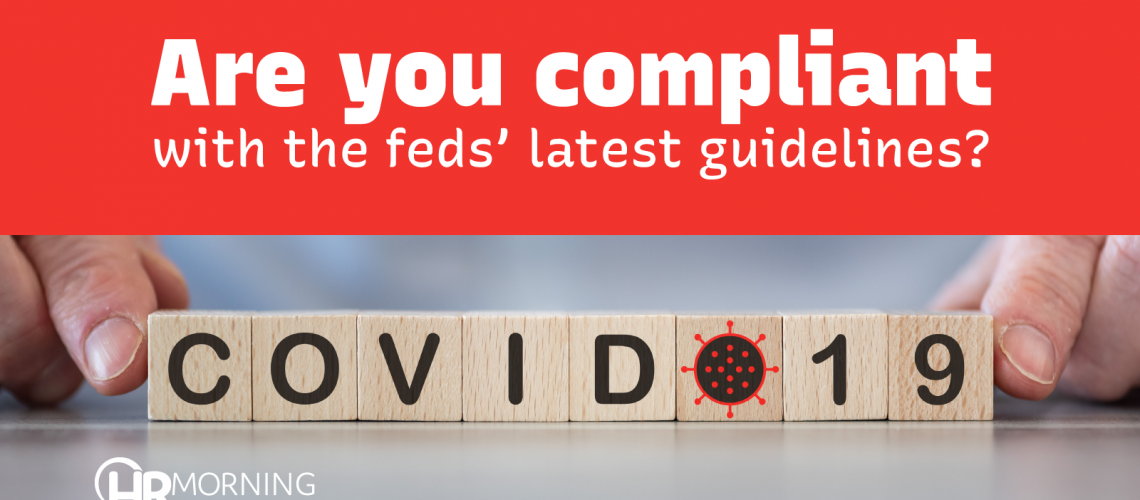As employers grapple with how to screen employees for the coronavirus upon returning to the workplace, several federal agencies have issued new testing rules and guidance.
In June, there were two big coronavirus testing developments:
• The EEOC issued a new ruling on June 17 that said employers are prohibited from requiring mandatory antibody testing.
• The DOL, as well as the Departments of Health and Human Services (HHS) and the Treasury, issued a testing guidance on June 23 in response to the Families First Coronavirus Response Act (FFCRA) and the CARES Act: Return-to-workplace testing must be covered by insurers for the duration of the pandemic.
Antibody testing’s prohibited
Since the Centers for Disease Control and Prevention (CDC) has recognized the reliability of antibody testing for the coronavirus is questionable, it doesn’t meet the ADA’s standard for medical testing, the EEOC says.
Because an antibody test shows whether someone once had
COVID-19, it doesn’t meet the ADA’s “job related and consistent with business necessity” standard.
To be job-related, there would have to be concerns about a “direct threat” to employees’ health. That’s why employers can’t require the test
as a condition of returning to work.
The guidance comes after some employment experts had warned antibody testing could be problematic. For example, an employer could possibly discriminate against an employee who has the antibody.
In addition, the CDC has said that while 200 antibody tests have flooded the market, false positives in antibody testing remains high.
The EEOC will continue to “closely monitor” the CDC’s recommendations on antibody testing. In the meantime, COVID-19 swab testing (which tests for active infections) and temperature checks satisfy the ADA’s standard
for testing.
COVID-19 testing costs
While many employers are choosing to make coronavirus testing a requirement for returning employees, the new guidance from the DOL, the HHS and the Treasury provides clarity on the scope of testing requirements, surprise COVID-19 bills and when testing must be covered by health insurers.
Here are some takeaways for employers from the feds’ new guidance:
COVID-19 testing costs: Health insurers are required to provide coverage for testing needed to diagnose COVID-19 without
cost-sharing in compliance with the FFCRA and the CARES Act.
The tests must be FDA-approved and would need to be conducted only during the pandemic.
Multiple tests: Insurers must cover more than one COVID-19 test on the same person, provided a second, third, etc., test is recommended by a health professional.
Out-of-network COVID-19 tests: While the CARES Act prohibits surprise medical billing for COVID-19 testing, the new guidance makes it clear out-of-network providers won’t be able to bill patients for charges in excess of what the insurer pays for the testing and related doctor’s visits.
Telehealth coverage: An employer may offer coverage only for telehealth services to employees not eligible for any other group plan.
——————————————————
Photo courtesy of: HR Morning
Originally Published On: HR Morning
Follow Medical Coding Pro on Twitter: www.Twitter.com/CodingPro1
Like Us On Facebook: www.Facebook.com/MedicalCodingPro







